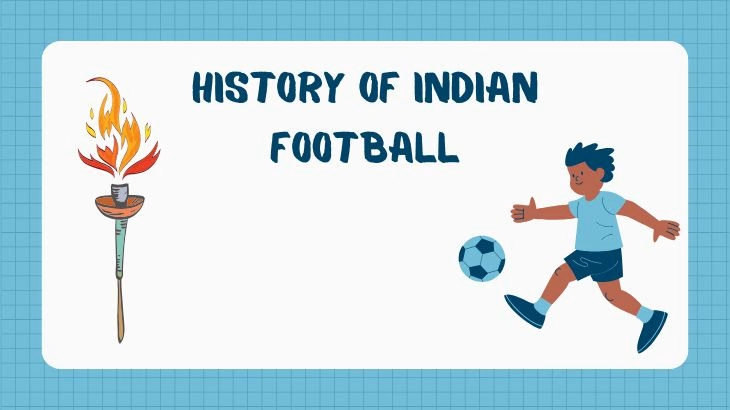Indian Football and the Olympics: Key Moments, Players, and Impact
Indian football in Olympics is a significant part of Indian sports history․ The Indian Olympic football team has achieved memorable milestones, influenced national development, and continues to inspire future prospects․
History of Indian Football in the Olympics

The history of Indian football in the Olympics began with the Indian national team’s debut at the 1948 London Games․ This marked a pivotal moment in the history of Indian football, as it was their first major international competition on such a prestigious stage․ Despite their lack of experience, the Indian Olympic football team showcased immense potential and talent․ The 1952 Helsinki Olympics presented early challenges for Indian football, but laid the groundwork for future successes․ The Indian football performance reached its pinnacle during the 1956 Melbourne Olympics, where they achieved an impressive semifinal appearance․ These milestones are fundamental to understanding the legacy of Indian football players and their contributions to Olympic football history․ India’s Olympic journey reflects a rich heritage and remarkable achievements in Asian Games football, establishing significant Indian football records and elevating the sport’s profile within India’s broader sports history․
1948 Olympics⁚ India’s First Participation
The 1948 Olympics in London marked the historic debut of Indian football on the global stage, signifying a crucial chapter in the history of Indian football․ This was the first time the Indian national team participated in Olympic football matches, symbolizing a new dawn for sports in independent India․ The Indian Olympic football team, led by Dr․ T․ Ao, demonstrated remarkable resilience and skill, despite playing mostly barefoot, a fact that captivated international audiences․ Their participation against teams with more resources showcased the team’s determination and fervor․ This event laid the foundation for future Indian football achievements, inspiring generations of Indian football legends․ Although India’s Olympic journey began with challenges, it also embodied hope and potential for football in India․ It was a defining moment, contributing to the enduring Indian football legacy and setting precedents for subsequent Indian football milestones․
1952 Helsinki Olympics⁚ Early Challenges
The 1952 Helsinki Olympics represented a period of early challenges for Indian football within the Olympic realm․ After their debut in 1948, the Indian national team faced significant hurdles during this tournament, which tested their resilience and adaptability on the international stage․ The Indian Olympic football team encountered formidable opponents, highlighting gaps in experience and infrastructure compared to established footballing nations․ Despite these obstacles, participation in the 1952 Olympics was instrumental in refining the skills and strategies of Indian football players․ It underscored the necessity for enhanced training and resources to compete effectively at such high levels․ These early experiences were pivotal in shaping subsequent Indian football achievements and contributed to the broader history of Indian football by emphasizing areas needing development․ Indian football’s performance during this period laid the groundwork for future success and became a learning opportunity for enhancing India’s Olympic journey․
1956 Olympics⁚ Semifinal Achievement
The 1956 Melbourne Olympics marked a historic milestone in Indian football, where the Indian Olympic football team achieved its most remarkable performance by reaching the semifinals․ This achievement is considered one of the highest points in the history of Indian football, showcasing the potential and prowess of Indian football players on an international platform․ Led by outstanding talents, the team delivered exceptional performances against formidable opponents, capturing attention worldwide․ The semifinal appearance was not only a testament to the players’ skill and determination but also underscored India’s growing capabilities in football․ This success significantly contributed to Indian football legacy, inspiring future generations and elevating the nation’s status in Olympic football history․ The 1956 Olympics remains a proud moment for India’s Olympic journey, symbolizing a time when Indian football made an indelible mark on the global stage and set new records for excellence․
1960 Rome Olympics⁚ Competitive Presence
The 1960 Rome Olympics marked another significant chapter in Indian football history, as the Indian Olympic football team made its presence felt with a competitive edge․ Although they faced tough competition, their participation underscored India’s commitment to establishing itself in Olympic football matches․ The Indian national team’s performance during the 1960 Olympics highlighted their ability to compete internationally, showcasing tactical improvements and strategic gameplay against seasoned opponents․ This period was crucial for reinforcing Indian football achievements and provided valuable experience for future tournaments․ Despite not advancing to the later stages, the Rome Olympics served as an essential platform for evaluating strengths and identifying areas for growth within the team․ This participation enriched India’s Olympic journey, contributing to the broader narrative of Indian sports history, while affirming the enduring spirit and potential of Indian football players on the global stage․
Key Moments and Achievements of Indian Olympic Football Team

The Indian Olympic football team has experienced several key moments and achievements, playing a pivotal role in shaping the history of Indian football․ Among these milestones, their participation in Olympic football matches marked significant advances in international recognition․ One notable achievement was reaching the semifinals in the 1956 Olympics, which highlighted India’s potential on a global platform․ Memorable victories and commendable performances against formidable opponents further underscored their competitive spirit․ These accomplishments not only contributed to Indian football records but also elevated the nation’s stature in Olympic football history․ Each landmark moment served as an inspiration for future generations, fostering growth and development in football in India․ These achievements are celebrated within Indian sports history, symbolizing perseverance and dedication․ Collectively, they form a crucial part of the enduring legacy of the Indian national team, leaving an indelible mark on India’s Olympic journey․
1948 Match Against France
The 1948 match against France marked a significant moment in the history of Indian football, as it was India’s debut on the Olympic stage․ Held during the London Olympics, this encounter symbolized the beginning of India’s journey in international football competitions․ Despite facing a strong French team, the Indian national team showcased remarkable skill and determination․ The match ended with a 2-1 defeat, but it highlighted India’s potential and competitive spirit․ Playing mostly barefoot, the Indian players gained admiration for their performance under challenging conditions․ This match served as a foundational experience, setting the tone for future Indian football achievements and fostering growth in the sport․ It is remembered as a pivotal event in Indian Olympic football history, reflecting the team’s courage and resilience and laying the groundwork for subsequent accomplishments in the realm of Olympic football matches․
1956 Victory Over Australia
The 1956 victory over Australia in the Melbourne Olympics stands as a landmark achievement in the history of Indian football․ This triumph was instrumental in propelling the Indian Olympic football team to unprecedented heights, marking their presence on the international stage․ The match culminated in a 4-2 victory for India, with standout performances from key players who showcased exceptional skill and teamwork․ This win not only advanced India to the semifinals but also solidified their reputation as formidable contenders in Olympic football matches․ The success against Australia is celebrated as one of the greatest moments in Indian football achievements, symbolizing the potential and prowess of Indian players․ It inspired future generations and contributed significantly to Indian football legacy․ This historic victory remains a defining moment in India’s Olympic journey, reflecting the team’s dedication and resilience in achieving excellence in global competitions․
1956 Semifinal Match
The 1956 semifinal match in the Melbourne Olympics remains a significant highlight in the history of Indian football․ Following their remarkable victory over Australia, the Indian Olympic football team faced Yugoslavia in the semifinals․ This match was a testament to India’s growing prowess in international football, as the team demonstrated both skill and resilience against a highly competitive opponent․ Despite ultimately losing 4-1 to Yugoslavia, reaching the semifinals was an unprecedented achievement for the Indian national team․ This accomplishment marked one of the most successful campaigns in Olympic football history for India, enhancing its reputation on the global stage․ The 1956 semifinal is celebrated as a pivotal moment in Indian sports history, symbolizing the potential and determination of Indian football players․ It laid the foundation for future aspirations and remains an inspiring chapter in India’s Olympic journey․
Notable Players and Contributions in Olympic Football

Indian football in Olympics has been significantly shaped by notable players who have left an indelible mark through their exceptional contributions․ Among these Indian football legends, Dr․ T․ Ao, the pioneering captain during the 1948 London Olympics, stands out for his leadership and vision․ Additionally, Neville D’Souza’s remarkable performance as a hat-trick hero in the 1956 Melbourne Olympics further elevated India’s standing in international football․ These Indian football stars showcased extraordinary talent and determination, contributing to key achievements and milestones in Olympic football matches․ Their performances not only enhanced the reputation of the Indian national team but also inspired future generations of Indian football players․ Collectively, these legends have enriched the history of Indian football, leaving a legacy that continues to influence the development of football in India․ Their contributions remain celebrated within Indian sports history and Olympic football history․
Dr․ T. Ao⁚ Pioneering Captain
Dr․ T․ Ao is celebrated as a pioneering captain in the history of Indian football, particularly for his role in leading the Indian Olympic football team during the 1948 London Olympics․ As the first captain of independent India’s national team, Dr․ Ao exemplified exceptional leadership and vision on the field․ His contributions were pivotal in setting the foundation for future Indian football achievements․ Despite the challenges faced during their Olympic debut against France, Dr․ Ao’s commitment and strategic acumen inspired his teammates and garnered respect internationally․ His legacy extends beyond his playing days, as he also contributed significantly to the development of football in India through various administrative roles․ Dr․ T․ Ao remains an iconic figure in Indian sports history, symbolizing the spirit and potential of Indian football and influencing subsequent generations of Indian football players and enthusiasts․
Neville D’Souza⁚ 1956 Hat-trick Hero
Neville D’Souza’s remarkable performance in the 1956 Melbourne Olympics has etched his name in the annals of Indian football history․ As the first Asian player to score a hat-trick in Olympic football matches, D’Souza exemplified extraordinary skill and precision on the field․ His historic hat-trick against Australia was crucial in securing India’s victory, propelling the team to the semifinals and marking a significant milestone in Indian Olympic football achievements․ D’Souza’s exceptional prowess and scoring ability were instrumental in elevating the status of the Indian national team on the international stage․ His contributions are celebrated as a highlight of India’s Olympic journey, inspiring future generations of Indian football stars․ Neville D’Souza’s legacy continues to resonate within Indian football records, symbolizing excellence and determination, and remains an enduring source of inspiration for aspiring Indian football players․
Impact of Olympic Participation on Indian Football

The participation of the Indian national team in Olympic football has had a profound impact on the development and popularization of football in India․ Indian football’s presence in the Olympics provided an international platform to showcase talent, significantly enhancing the sport’s recognition within the country․ This exposure contributed to the growth of domestic leagues and fostered interest among young athletes, inspiring them to pursue football professionally․ The achievements of the Indian Olympic football team created a sense of national pride and highlighted India’s potential in global sports competitions․ Moreover, these Olympic experiences have played a pivotal role in shaping policy decisions and investments towards improving football infrastructure and training facilities across India․ Collectively, the legacy of India’s Olympic journey remains a cornerstone in the history of Indian football, motivating continuous efforts for advancement and excellence in this sport․
Influence on National Football Development
The participation of Indian football in Olympics has significantly influenced national football development, catalyzing advancements within the sport․ Olympic exposure provided a much-needed platform for Indian football players to compete at an international level, showcasing their skills and fostering global recognition․ This visibility spurred interest and investment in football infrastructure across India, leading to the creation and enhancement of training facilities, academies, and domestic leagues․ The success of the Indian Olympic football team inspired policy changes aimed at nurturing young talent and elevating the standard of play nationwide․ Additionally, it encouraged collaborations with international football bodies, facilitating knowledge exchange and technical expertise․ The history of Indian football is deeply intertwined with its Olympic journey, illustrating how these experiences have shaped strategic initiatives and long-term goals for football development in India, ensuring the sport’s sustained growth and popularity․
Legacy in Indian Sports History
The legacy of Indian football in Olympics holds a distinguished place in Indian sports history, reflecting the remarkable achievements and enduring influence of the Indian Olympic football team․ The team’s participation and successes in various Olympic tournaments have played a crucial role in elevating the status of football within India, fostering national pride and unity․ Iconic moments, such as the 1956 semifinal achievement, are celebrated as milestones that exemplify India’s potential on an international stage․ The contributions of Indian football legends during these events continue to inspire future generations, serving as testament to the skill and determination inherent in Indian athletes․ This legacy is not only a source of inspiration but also a foundation for ongoing development initiatives aimed at advancing Indian football․ As such, it remains a significant chapter in the broader narrative of India’s sporting achievements and aspirations․
Challenges and Future Prospects for Indian Football in Olympics

The journey of Indian football in Olympics involves addressing significant challenges while exploring promising future prospects․ Despite historical successes, the Indian national team faces hurdles in Olympic qualification due to evolving competition standards and infrastructure limitations․ Enhancing training facilities, fostering grassroots development, and securing adequate funding are imperative steps towards overcoming these challenges․ Additionally, strategic collaborations with international football organizations can offer valuable insights and technical expertise to enhance player development․ The future prospects for Indian football in Olympic events hold promise, as initiatives aimed at nurturing young talent and expanding domestic leagues gain momentum․ By investing in long-term development goals and creating a robust ecosystem for football, India can aspire to regain its foothold on the Olympic stage․ The commitment to continuous improvement and adaptation will be key in realizing the aspirations of Indian football players and stakeholders alike․
Current Challenges in Olympic Qualification
The Indian national football team’s quest for Olympic qualification encounters several formidable challenges that must be addressed to enhance competitiveness․ One of the primary hurdles is the disparity in infrastructure and facilities compared to global standards, which impacts player development and preparation․ Additionally, the intense competition within Asian qualifiers demands strategic planning and investment in nurturing technically adept players capable of excelling at international levels․ Limited exposure to high-quality matches and tournaments further hampers progress, necessitating efforts to integrate Indian teams into global circuits more effectively․ Moreover, fostering a robust grassroots program to identify and train young talent is vital for building a pipeline of skilled athletes․ Collaborative partnerships with international football associations can also provide valuable insights and resources․ Overcoming these challenges requires a concerted effort from stakeholders to prioritize football’s elevation, ensuring sustainable growth and success in future Olympic endeavors․
Future Prospects and Development Goals
The future prospects for Indian football in Olympics hinge on strategic planning and dedicated efforts to achieve targeted development goals․ Central to this vision is the establishment of a comprehensive talent identification and nurturing system, aimed at discovering promising young athletes and providing them with adequate training and competitive exposure․ Investing in state-of-the-art infrastructure and advanced coaching methodologies will be pivotal in enhancing player capabilities to meet international standards․ Furthermore, fostering partnerships with global football entities can facilitate technology transfer and tactical expertise, enriching the domestic football ecosystem․ The integration of scientific approaches in fitness and performance analysis will also play a crucial role in optimizing athlete preparation․ By aligning these initiatives with national sports policies and community engagement programs, India can build a sustainable framework for nurturing Olympic-caliber football teams, ultimately aspiring to reclaim its place on the Olympic stage․

